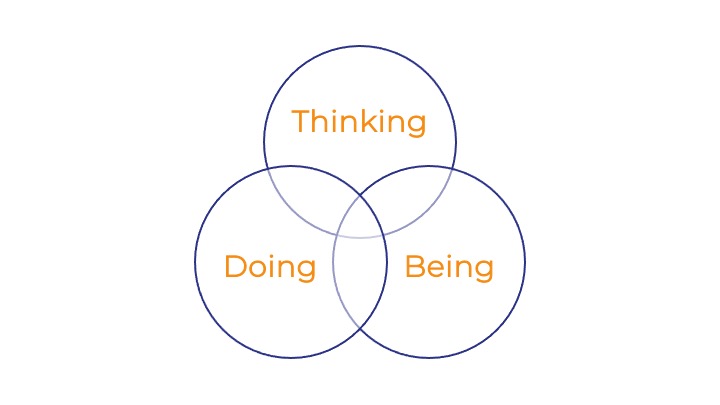COVID 19 has created a huge impetus to the adoption of digital technologies. In effect, a decade’s worth of change has been compressed into two years.
The rapid growth of eCommerce―and the boom in online shopping―is an example of this trend. Another example is the way that collaboration and communications technology has enabled remote working at scale.

In a few short months Zoom moved from being an obscure brand to a vocabulary that captured the Zeitgeist of remote work. Now we are variously Zooming (on a Videocon, not necessarily on Zoom), Zoomed Out (fatigued from video calls), Zumped (fired over Zoom), or Zoom Bombing (joining calls uninvited). For many commentators, it seems as if COVID has been the shove that businesses in traditional industries needed to “become digital”.
But this is really a simplification of what it is to become “digital”. Digital, at its’ core, isn’t a set of technologies, it’s a way of working. It’s a re-imagining of the traditional operating model that’s rooted in Tailorism and the factories of the early industrial economy. The established bureaucratic model essentially treats people as cogs in a machine and believes that roles can be narrowly defined and standardised. It also operates on the assumption that work needs to be supervised and closely managed to ensure compliance and predictability.
Pioneering digital businesses (think Google, Netflix, Amazon, and more recently Haier) set about re-imagining the traditional bureaucratic operating model. They put the customer at the centre of their organisations, and they understood that the people closest to customers were best placed to make the decisions that would shape the success or failure of the business. They pushed decision-making to the front line and trusted relatively “junior” people to make important decisions. And they also believed in the team as an organising principle and in the power of autonomous teams. The language of “spans and layers” is anathema to these organisations: they have flat structures with far fewer managers than traditional organisations. In true digital businesses, the role of the manager is primarily as coach, facilitator, and motivator. The best “digital” businesses are organic, fluid, self-organising entities.
In these organisations, going digital isn’t achieved by the simple act of establishing an online store or launching a mobile app. They start with the technology that enables these ways of working and move out from there. Looked at this way, COVID has indeed accelerated the digital revolution. Almost overnight, offices emptied out and we had to re-invent how we worked. Collaboration platforms like Zoom, Slack, Confluence and Miro moved out of the engineering and product teams and invaded every part of the organisation. Work got done, teams came together organically to solve complex challenges and, quickly enough, it become seamless for customers. And the people most challenged by this upheaval? I’d argue that it is leaders tasked with managing a team.

In my coaching and consulting work, I observe leaders who are struggling to redefine their role when work and teams are virtual. Some of them have made a smooth transition to be a leader as coach, facilitator, and motivator, but for many of them it’s a work in progress. In my experience, the loudest voices for a return to the office are executives: they long for the certainty and sense of place and position that the office confers. I would argue that the shove that the pandemic provided to the adoption of digital ways of working is a great stride forward. As we return to the office, or adopt a hybrid model, we must guard against the erosion or dismantling of digital operating models. Remote teams have performed astoundingly well in the pandemic and many workers are happier working remotely because they have enjoyed the freedom and autonomy, and the absence of supervision, that comes with working remotely. And they’ve enjoyed the collaboration and egalitarianism. That is, they’ve enjoyed the best aspects of a digital operating model.
This isn’t to argue that remote working is a nirvana. It has well documented drawbacks. The challenge for executives in the world of hybrid work will be to solidify these new ways of working and redefine the role of leaders in a digital workplace. Their role of managing people is still important, but it is different in a digital business than in a traditional business.
Ways to Adapt to the Digital Workplace
To adapt successfully to the new digital workplace, leaders need to adapt along 3 dimensions: “Thinking”, “Doing” and “Being”.

Adapting how you think
- Be thoughtful and self-aware: Don’t reflexively go back to old ways of working when your people are in the office. Nurture and reinforce the autonomy that the pandemic has engendered.
- Overcome an unconscious “proximity bias”: Don’t neglect team members who aren’t in the office. They deserve as much of your attention (and perhaps more) than the people sitting in the workstation next to you.
Adapting what you do
- Harness the power of the team: Use the office time for collaborative work and give your people time together (we are social beings and remote work can be isolating).
- Coach — don’t tell: Support your people to do their best work by asking questions that unlock potential.
Adapting how you are
- Recognition is rocket fuel: Find something to praise in every person, every day. This will go a long way to rebuilding trust and rapport.
- Be brave: Everyone’s trying to work it out. Don’t be afraid to share how you are feeling.
- Carry water for your team: Ask them how you can help and what they need from you.
Let’s not unconsciously discard the progress we’ve made in the desire to get back to the office and back to a place where managers feel at home.










